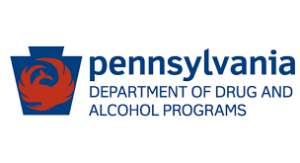PA Health Policy Update for Friday, July 15
The following is an update of selected state health policy developments in Pennsylvania for the week of July 11-15, 2022. (Some of the language used below is taken directly from state documents.)
Final FY 2023 Budget
Governor Wolf signed the Fiscal Code (House Bill 1421) into law on Monday, July 11. With the Fiscal Code’s signing, all the relevant budget-related bills for FY 2023 are enacted, including the budget bill (Senate Bill 1100) and the Tax Code (House Bill 1342).
 Governor Wolf
Governor Wolf
Governor Wolf has signed several bills addressing health care issues.
- House Bill 1421 increases Medicaid rates for skilled nursing facilities to help them meet upcoming Department of Health regulation updates that in part will increase staffing requirements. The rate increase of nearly 20 percent increases Medicaid funding for skilled nursing care by almost $300 million a year.
- House Bill 2097 amends Title 35 (Health and Safety), in emergency medical services system, further providing for basic life support ambulances.
- House Bill 2419 amends the Outpatient Psychiatric Oversight Act by adding a definition of “telebehavioral health technology” and provisions regarding the use of the technology.
- House Bill 2604 amends the employee photo identification provisions of the Health Care Facilities Act.
- House Bill 2679 amends the Pharmacy Act to preserve three regulatory suspensions authorized under the COVID-19 disaster emergency declaration, including the ability of pharmacists to provide influenza and COVID-19 vaccines to children ages five and older.
- Senate Bill 818 amends the Health Care Facilities Act for the purpose of allowing ambulatory surgical facilities to seek an exception or waiver from the Department of Health for certain surgical procedures and permits cardiac catheterization to be performed in ambulatory surgical facilities.
- Senate Bill 1235 amends the Insurance Company Law, further providing for contracts and coverage packages in comprehensive health care for uninsured children.
- House Bill 2032 amends the Sexual Assault Testing and Evidence Collection Act, providing that the failure to report injuries by firearm or criminal act does not constitute an offense if the submission of sexual assault evidence is an anonymous submission.
General Assembly
The state House and Senate are currently in recess. The House is scheduled to return to session on Monday, September 12 and the Senate is scheduled to return on Monday, September 19.
 Department of Human Services
Department of Human Services
- The Department of Human Services (DHS) has published a series of Medical Assistance Bulletins to issue updated handbook pages that include the requirements for prior authorization and the type of information needed to evaluate the medical necessity of certain prescriptions. These bulletins apply to all licensed pharmacies and prescribers enrolled in the Medical Assistance program. The types of prescriptions covered by these bulletins are:
- DHS’s Office of Medical Assistance Programs, Office of Developmental Programs, Office of Child Development and Early Learning, Office of Children, Youth and Families, and Office of Mental Health and Substance Abuse Services have issued a joint bulletin providing guidance to county and private children and youth social service agencies, county mental health/behavioral programs, early intervention programs, and managed care organizations on the process for referring children to county intellectual disability and autism programs when a child has a diagnosis of an intellectual disability, developmental disability, and/or autism. Find that joint bulletin here and see attachments on diagnostic and eligibility information for services through county intellectual disability and autism programs, an overview of the programs offered by the offices issuing the joint bulletin, and the importance of registering with county intellectual disability/autism programs.
- The federal Centers for Medicare & Medicaid Services (CMS) has informed states and stakeholders that as a result of the 2022 Additional Ukraine Supplemental Appropriations Act and the Uniting for Ukraine program, many displaced Ukrainian nationals arriving in the U.S. are eligible for health insurance through Medicaid, CHIP, the health insurance marketplace, or the Refugee Medical Assistance program. Learn more from this CMS fact sheet.
COVID-19: By the Numbers
- The daily average of newly reported COVID-19 cases rose 17 percent over the past week, to 2850 new cases a day.
- COVID-19-related deaths in the past week remained comparable to their level of recent weeks.
- The number of Pennsylvanians hospitalized with COVID-19 and on ventilators because of the virus remained generally steady over the past week but the number in hospital ICUs rose 30 percent.
- Fifty-two of Pennsylvania’s 67 counties are currently experiencing high rates of community transmission of COVID-19, down from 62 counties last week. Four counties experienced a moderate rate of community transmission and 11 a substantial rate.
Monkeypox
The Department of Health has issued a health alert advising providers about the current state of availability of testing for monkeypox and when providers should consider pursuing such testing for their patients. Find that alert here.
The CDC has posted an updated map showing the distribution of 1053 confirmed cases of monkeypox in the U.S. as of July 13, 32 of them in Pennsylvania and more than half of those cases in Philadelphia.
 Stakeholder Events
Stakeholder Events
Department of Human Services – Medical Assistance Advisory Committee – Consumer Subcommittee – July 27
The Medical Assistance Advisory Committee’s consumer subcommittee will meet virtually on Wednesday, July 27 at 1:00. Go here to register to participate.
Department of Human Services – Medical Assistance Advisory Committee – July 28
The Medical Assistance Advisory Committee will meet virtually on Thursday, July 28 at 10:00. Go here to register to participate.
Department of Health – Special Pharmaceutical Benefits Program Advisory Council – July 28
The Department of Health’s Special Pharmaceutical Benefits Program (SPBP) Advisory Council will hold a public teleconference meeting on Thursday, July 28, 2022, from 10 a.m. to 12 p.m. The SPBP Advisory Council will provide program guidance and recommendations to the Department’s SPBP in regard to the following: drug formulary; covered lab services; drug utilization review; clinical programs; eligibility; and program management. Learn more about the meeting and how to register to participate in this notice.
 FY 2023 Budget Update
FY 2023 Budget Update General Assembly
General Assembly Department of Health
Department of Health General Assembly
General Assembly Governor Wolf
Governor Wolf Department of Drug and Alcohol Programs
Department of Drug and Alcohol Programs General Assembly
General Assembly Department of Drug and Alcohol Programs
Department of Drug and Alcohol Programs